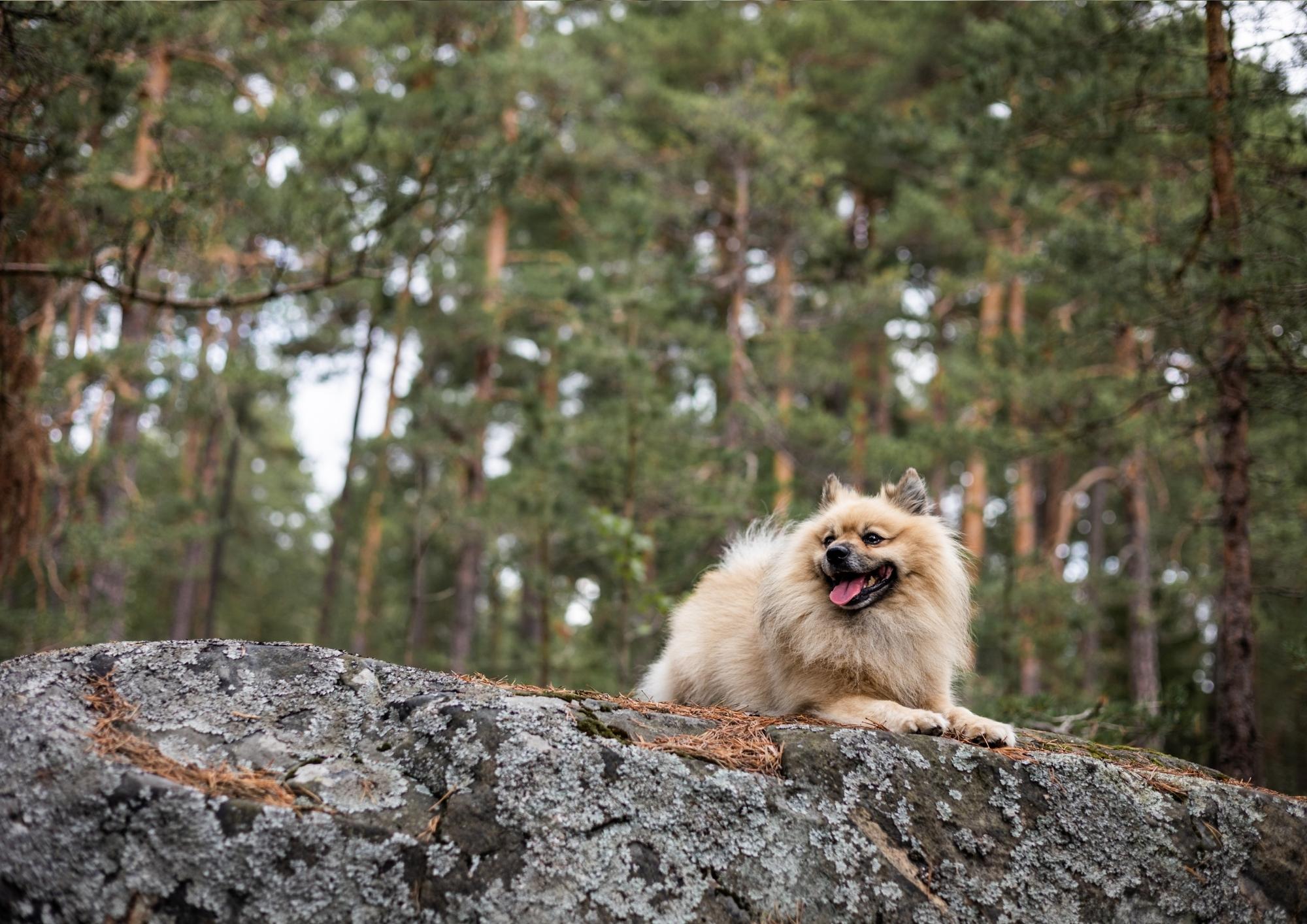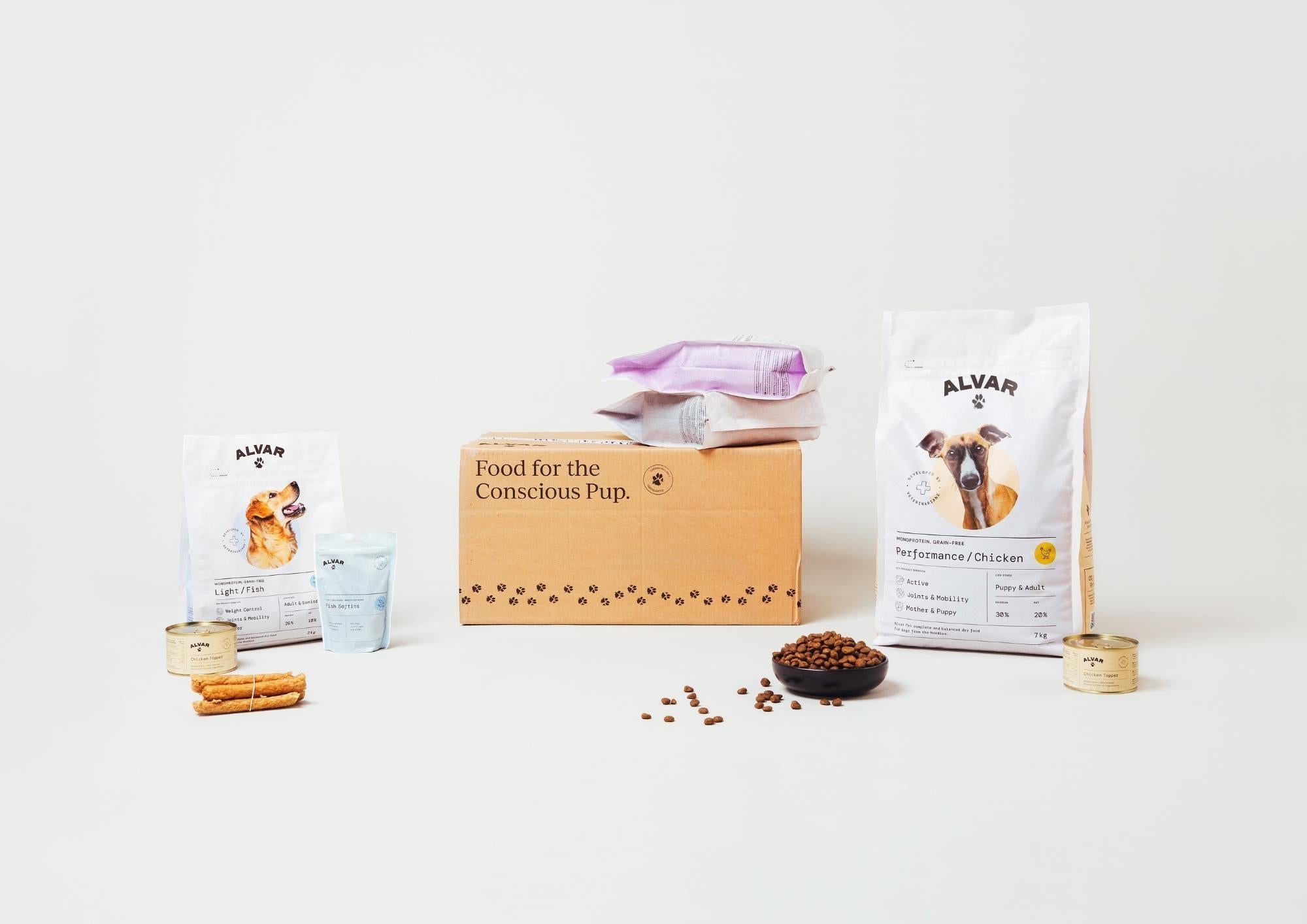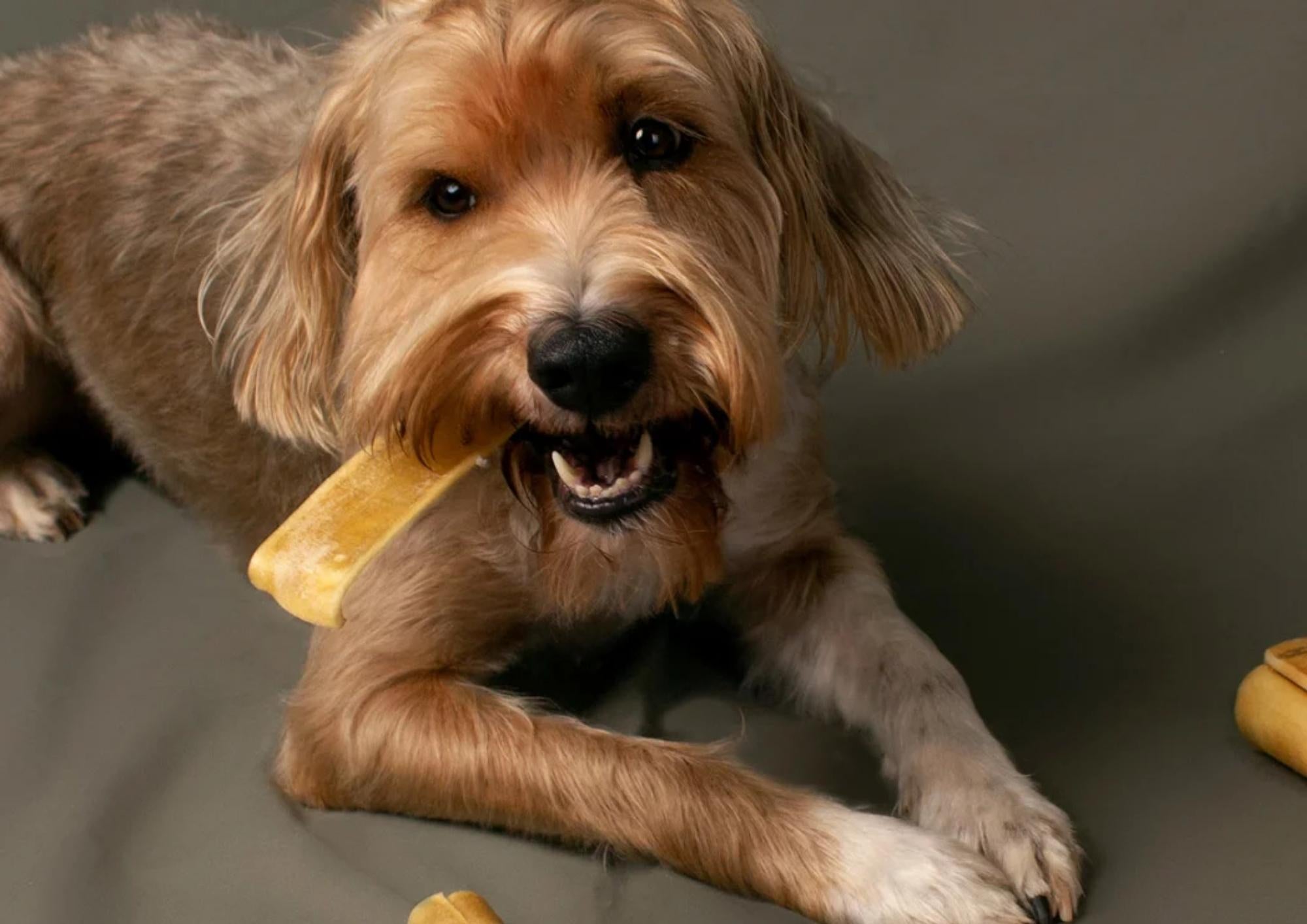Poop, grass, and everything else
Eating feces from different species is perhaps one of the grossest habits, but from a dog’s perspective, it can also be understandable. Simply put, the reason behind eating feces might be that it sometimes contains a lot of undigested nutrients, and therefore poop can smell very appealing to a dog (the same, unfortunately, applies to vomit—yuck).
For example, eating droppings from herbivores like rabbits and horses can even be considered quite normal behavior. Also, eating grass may simply be due to its taste. The belief that dogs eat grass to relieve stomach discomfort hasn’t been proven.
According to some theories, puppies might eat other dogs’ feces to develop their own gut microbiota, and on the other hand, they might learn the habit by observing the mother dog, who licks and cleans her puppies and also eats their feces. A habit learned in puppyhood can be hard to break even in adulthood.
Eating soil, on the other hand, has sometimes been associated with liver diseases or anemia. Certain diseases or medications may also cause increased appetite and hunger, which leads the dog to seek anything edible.
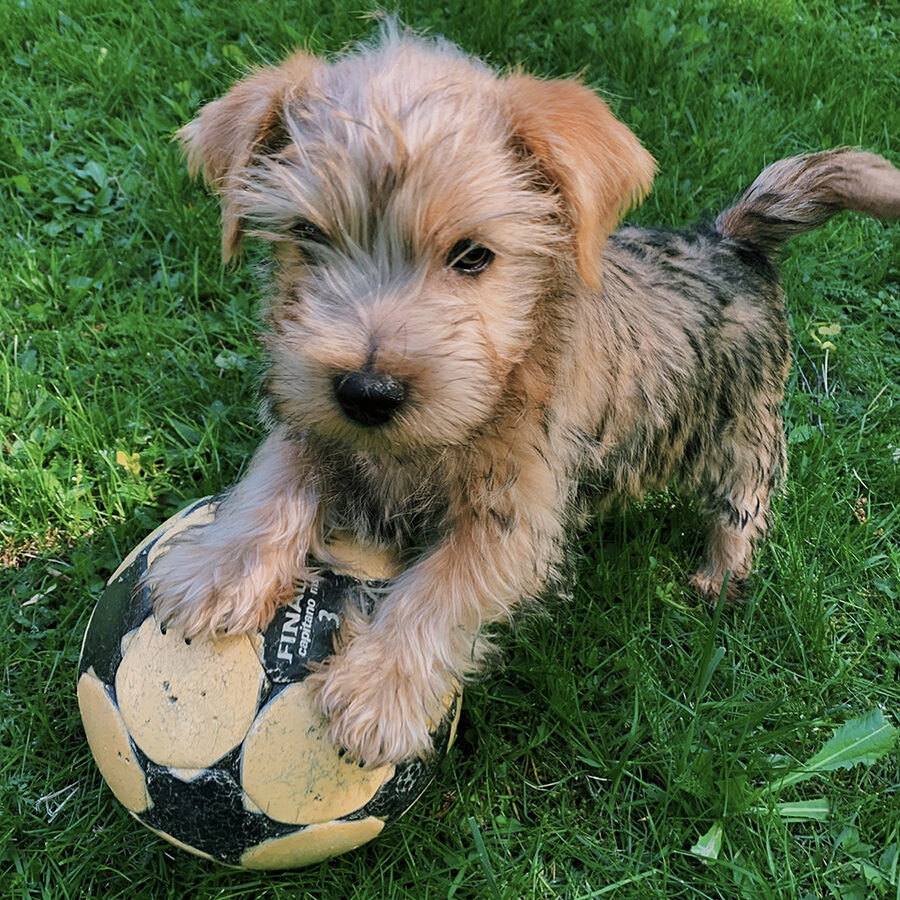
Eating inappropriate things can even be dangerous
Regardless of the reason, eating inappropriate things is not a recommended activity. Even though the occurrence of intestinal parasites in dogs is relatively low in Finland, eating feces can pose a risk of contracting parasites or other pathogens, depending on the animal species the droppings came from.
Inappropriate items may also cause digestive problems or even a blockage risk if a large amount of indigestible material is consumed.
Eating sticks or stones can also damage teeth, and sticks can get stuck in the dog’s mouth. There’s also a potential poisoning risk—at least theoretically—especially for puppies and small dogs, if they eat discarded cigarette butts, nicotine pouches, or chewed xylitol gum.
If you suspect your dog has eaten something inappropriate but didn’t see what it was, it’s a good idea to monitor the dog’s condition and contact a veterinarian if any symptoms appear.

The causes of the behavior may be health-related, but more often there’s another explanation
Nowadays, it’s very rare for dogs to suffer from nutritional deficiencies or insufficient energy intake. However, if eating feces or other inappropriate items starts suddenly and the dog’s behavior clearly changes, it’s good to contact a veterinarian and rule out problems affecting nutrient absorption, such as chronic diarrhea, pancreatic issues, or intestinal parasites.
Still, with medical causes, it’s unlikely that eating strange things would be the only symptom. Behavioral problems of various degrees are more common reasons for eating inappropriate items, and a dog may develop this unwanted habit due to boredom or stress. Sometimes the cognitive decline in older dogs can also cause them to eat inappropriate things.
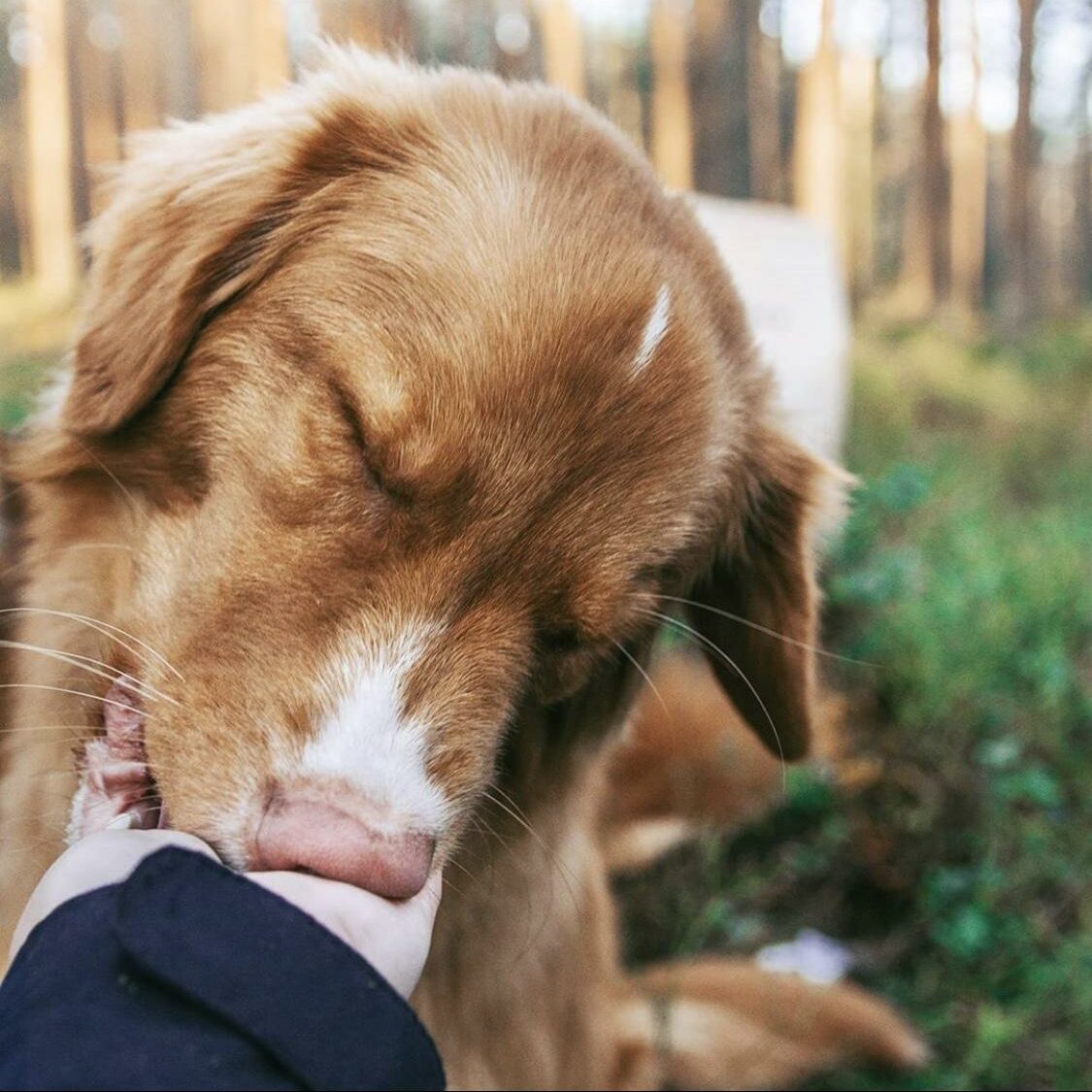
When and how to intervene in the behavior
Occasional grass nibbling or munching on rabbit droppings is normal behavior for a dog and is usually nothing to worry about. Closer investigation or intervention is required only if the behavior becomes disturbing for the owner or the dog, or if eating inappropriate things is linked to other health or behavioral problems.
If the behavior starts suddenly—especially if the dog shows other symptoms suggestive of illness—it’s advisable to consult a veterinarian. General tests like bloodwork and imaging may help clarify the situation if needed.
If there appear to be other behavioral issues behind the unwanted habit, it’s also a good idea to investigate those, for example, with a veterinarian, a specialist in problem behavior in dogs, or a dog trainer.
At home, the issue can be addressed if the dog doesn’t show other signs of illness or behavioral challenges. If it’s just a “bad habit” of a young dog, the goal should be to get the dog to forget this entertaining pastime. You can try to limit the behavior by preventing access to inappropriate things. Walk the dog on a leash and clean up droppings from your yard quickly. Treats or toys on walks may help redirect the dog’s attention. It’s also important to ensure the dog has enough other things to do, like sufficient outdoor time, training sessions, and time spent together.

